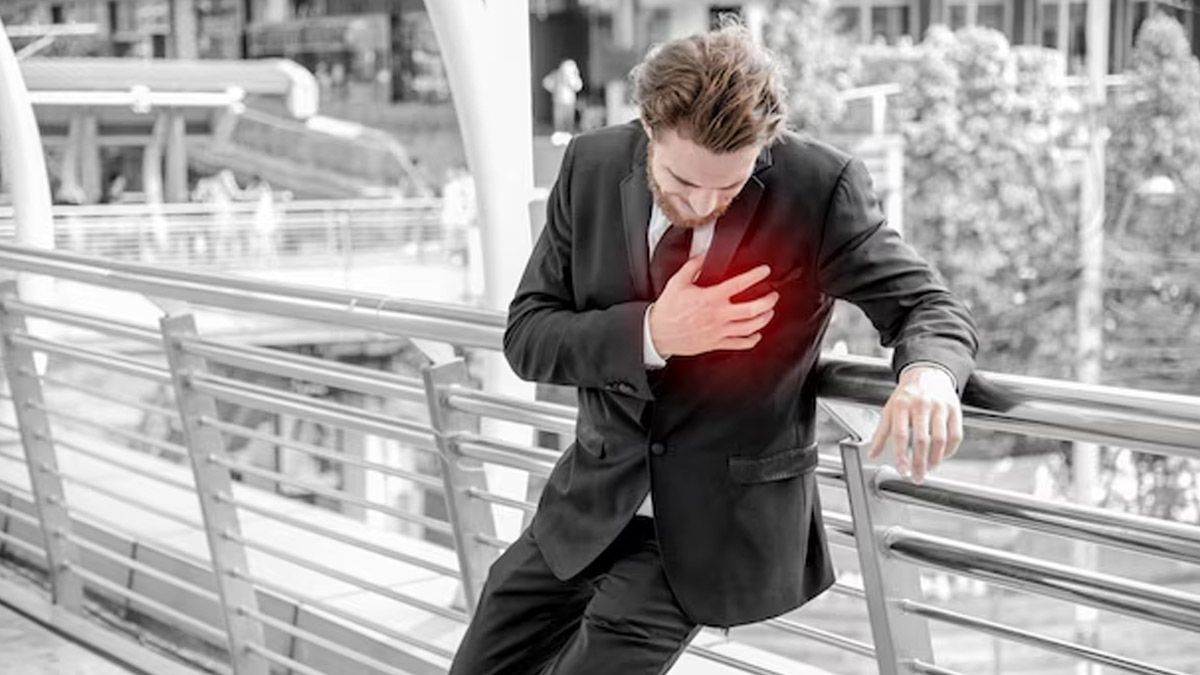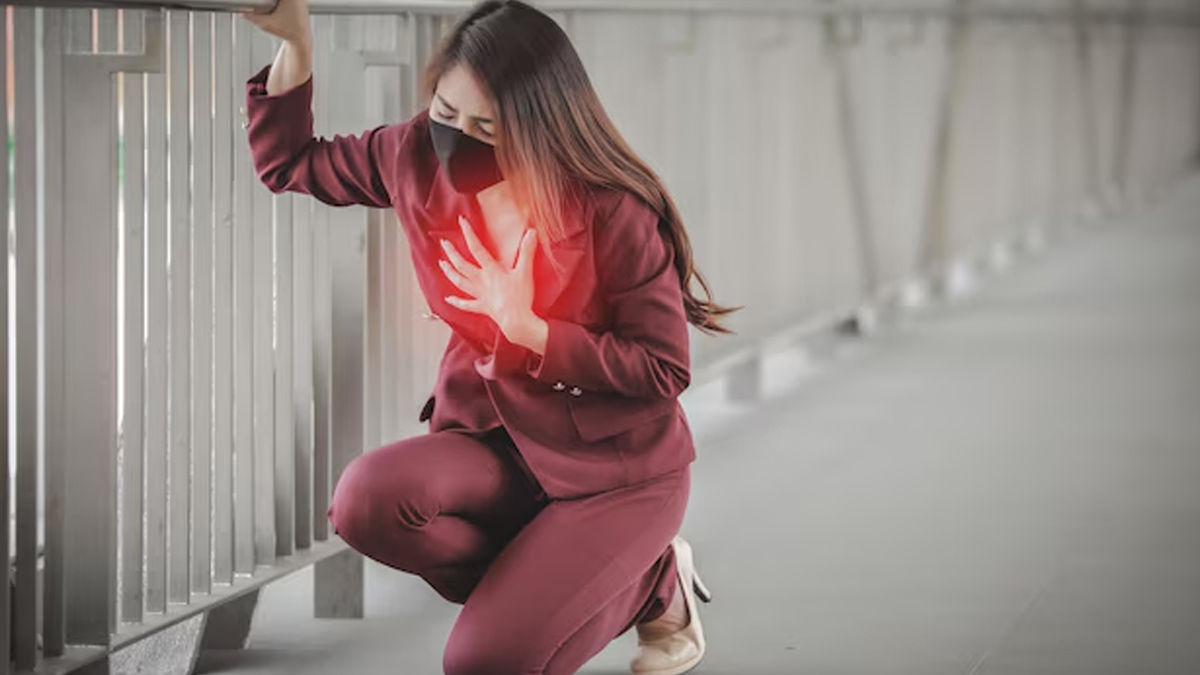
Climbing stairs can leave anyone breathless. This is because any form of physical activity increases the body's demand for oxygen and energy and makes the heart and lungs work harder to meet this demand. However, if you feel heaviness in your chest and persistent discomfort, it could signal something more serious.
Table of Content:-
Could it be a heart disease warning, a lung problem, or something else? All of these questions are likely to trouble you if you don't find relief. And to help you get your answers, the OnlyMyHealth team spoke to Dr Tripti Deb, Senior Consultant Cardiologist, Apollo Clinic, Nizampet, Hyderabad.
Also Read: Unexpected Ways Your Body Signals A Heart Problem
Could It Be My Heart?

In certain cases, chest pain and tightness can in fact be a sign of underlying heart conditions, including angina, which is reduced blood flow to the heart due to Coronary Artery Disease (CAD), and a heart attack, caused by a blocked artery.
To determine the exact cause, Dr Deb advised patients to listen to their medical history, risk factors, and how severe their symptoms are. Factors that increase the risk include:
- Smoking and alcohol consumption
- High blood pressure
- High cholesterol
- Diabetes
- Obesity
- Lack of regular physical activity increases risk
- Diets high in unhealthy fats, cholesterol, and sodium
- Chronic stress
- Substance abuse
- Age
- Family history of heart disease
- Those who have conditions like sleep apnoea, chronic kidney disease, and Peripheral Artery Disease (PAD)
- Certain medications that affect blood vessels
“Your physician can perform a physical exam, ECG, and stress test if necessary,” Dr Deb added.
Potential Warning Signs Of Heart Trouble

If your chest is constricted with pain which travels into the arm, neck, jaw, or back, or you experience shortness of breath, dizziness, nausea, or palpitations, call for assistance. Common warning signs include:
- Dizziness or lightheadedness
- Shortness of breath
- Heart palpitations or a feeling of a racing or fluttering heart
- Pain or discomfort radiating to the jaw, neck, or arm
- Cold sweats or feeling unwell
Also Read: Importance Of Diagnosing Angina Early: Early Signs And Tips You Must Know
Other Causes Of Chest Heaviness
“Chest heaviness during exercise could be caused by numerous other factors, such as musculoskeletal fatigue, respiratory status, gastrointestinal upset, or anxiety, but one should see a health practitioner to rule out underlying cardiac disease,” Dr Deb noted.
How To Reduce Chest Heaviness During Physical Activity
For exertional chest tightness, here’s what you should do:
- Regular exercise, increasing to more strenuous effort
- Healthy diet to keep weight on track
- Relaxation techniques to minimise stress
- Regular check-ups and screening for blood pressure, cholesterol, and blood sugar
- Undergo a cardiac stress test or echocardiogram, if recommended.
Conclusion
If you’re someone who also experiences a heaviness in the chest after climbing stairs or any other physical activity, it is important to determine the cause. While physical exertion can leave you breathless, persistent chest pain and tightness can signal a more serious condition. Consult a doctor if the pain and discomfort linger on, and seek necessary screening and treatment.
Also watch this video
How we keep this article up to date:
We work with experts and keep a close eye on the latest in health and wellness. Whenever there is a new research or helpful information, we update our articles with accurate and useful advice.
Current Version